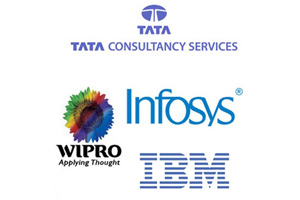MUMBAI: When American Senator Charles Schumer described Indian software firms as ‘chop shops’, few imagined that the taxman back home could add salt to the slur.
 Indeed, Indian income-tax authorities are beginning to claim tax on the money that software firms make by sending their boys to work with companies in the US, Europe and other markets — a business that is known as onshore software development, or simply ‘body shopping’.
Indeed, Indian income-tax authorities are beginning to claim tax on the money that software firms make by sending their boys to work with companies in the US, Europe and other markets — a business that is known as onshore software development, or simply ‘body shopping’.
For the I-T department, this is an activity that involves export of manpower and not export of software. Driven by the underlying argument, tax offices have sent notices to software companies.
Close to 10 companies, including some of the big names, have received income-tax notices in the last few days, a senior I-T department official said.
Body shopping, or ‘time and material contracts’, receipts could be as high as 50% of total revenue receipts of IT companies based out of India. These are arrangements where IT professionals from India are sent for short assignments of 3-6 months to work in companies abroad. The foreign company pays the Indian firm for the services of each professional while the Indian company pays a daily allowance to these professionals over and above the salary paid to them.
The tax authorities are making the claim on the premise that during these brief assignments, the professionals sent from India are under the “control and supervision” of the company abroad, which also “owns” the services they render or the products they develop.
“It’s a technical issue that would be appealed… There are companies that have received notices. However, companies that have organised such activities under a separate overseas subsidiary will not be impacted,” said the CFO of a software company who refused to be quoted on the subject.
But companies that run the two activities — T&M contracts as well as India-based software development (offshore work) — under one roof do not spell out the revenue streams from the two businesses and the nature of contracts separately. This is possibly because of reasons related to business confidentiality and competition.
But, in this context, the revenue authorities think that software firms should bifurcate the T&M contracts from the regular software development they carry out. The total tax claim from the industry runs into thousands of crores and involves big as well as small companies, said the tax department official. As far as the T&M contract receipts go, software firms currently pay no tax on it by claiming deduction under Section 10A of the Income Tax Act.
The tax office is also challenging what it calls “dual benefits claimed by IT companies”. It wants the companies to reduce the expenses incurred in foreign exchange from the total export turnover.
For instance, if the total turnover of a company is Rs 100 crore and the export turnover is Rs 80 crore, and the total profit is Rs 20 crore, then auditors use a simple formula to calculate the tax that the company needs to pay on non-export income.
This, here, works out to Rs 4 crore. (Since Rs 16 crore is the profit on account of exports, the difference between Rs 20 crore and Rs 16 crore is the amount on which the company has to pay tax). Now, suppose, the company spends Rs 10 crore in foreign currency, which could take the form of payment of per day allowance to professionals sent abroad. After factoring in this expense, the export turnover works out to Rs 70 crore (instead of Rs 80 crore).
As a result, the quantum of profit on account of export reduces to Rs 14 crore from Rs 1 6 crore. Thus, in this case, the company has to pay tax on Rs 6 crore — the difference between Rs 20 crore and Rs 14 crore — and not Rs 4 crore.
“This boils down to dual benefits. First, IT firms are not paying tax on T&M contracts; second, they are not reducing the foreign currency expenses for providing technical services abroad from the export turnover, and, therefore, ending up paying a lower tax than they should,” said the tax department official.


